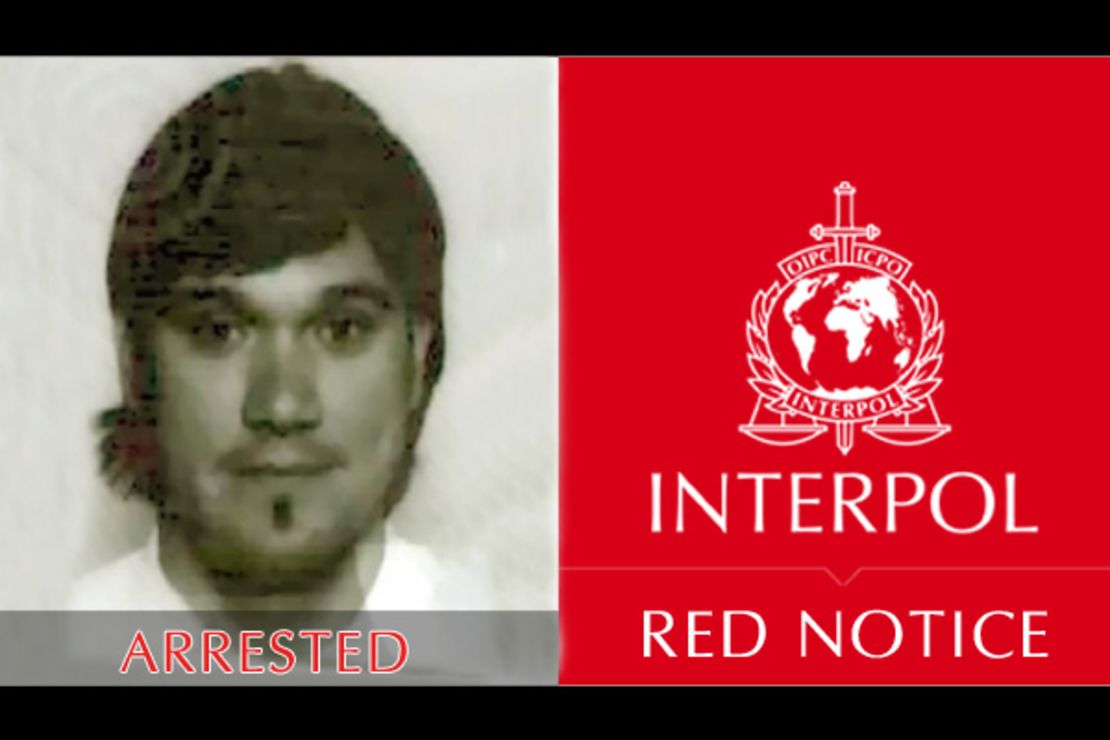Story highlights
Match-fixing suspect arrested at Milan's Malpensa airport on Thursday
Admir Suljic tells authorities that he is boarding a flight from Singapore
Slovenian citizen had been on the run since December 2011
He is accused of being part of a syndicate which bet on Italian soccer matches
A man suspected of being part of a major soccer match-fixing organization has given himself up to Italian police after being a fugitive since December 2011.
Admir Suljic, a former football player, was arrested at Milan’s Malpensa airport Thursday following his arrival from Singapore, having told authorities he would do so via his defense lawyer.
The 31-year-old Slovenian has been accused of direct involvement in a transnational criminal group said to be composed of individuals from Singapore and the Balkans which had been targeted by the “Last Bet” investigation.
Authorities said the group’s activities included influencing the results of Italian league matches during the 2009-2010 and 2010-2011 seasons. Investigations into this have targeted top clubs such as Napoli, and involved a raid on the Italy team headquarters ahead of Euro 2012.

“This is exactly the type of result which can be achieved when police share information in real time and use Interpol’s global network to locate, identify and arrest suspects,” said the head of the worldwide policing agency, Ronald Noble.
“The arrest of this suspected match-fixer could not have been achieved without Italy and Singapore’s close cooperation with Interpol, nor without a great deal of behind-the-scenes work by prosecutors and magistrates.
“Those who doubted Singapore’s ability or commitment to fight match-fixing and bring those wanted for arrest to justice need to understand that Singapore acts when the evidence exists and is shared and when their laws permit. Singapore and Italy remain two of Interpol’s most active and effective member countries.”
Interpol said Suljic was one of more than 500 fugitives wanted by 59 member countries as part of 2012 Operation Infra-Red – which has so far led to 130 people being arrested or located.
Read: Drogba’s former club punished in match-fix case
He is suspected of working for Singaporean businessman Tan Seet Eng, also known as Dan Tan, who is also wanted by Italian authorities.
Italian police said Suljic had “spent a long period of inaction in Singapore in close contact with other members of the group of this organization, including a well-known Singaporean citizen.”
Meanwhile, Singapore police said Thursday that four senior officers will go to Interpol’s French headquarters in Lyon during the next fortnight to assist in match-fixing investigations.
The force said it hoped to help build “a concrete case” against the individuals and syndicates involved.
“The team aims to collect available information from these countries and seek their assistance to grant us access to evidence, witnesses and/or suspects whom they believe to be involved in the alleged match-fixing cases,” read a statement.
Read: China’s love of gambling skews sector
“The team will also be exploring avenues to offer our assistance and share available information we have with these affected countries.”
Match-fixing has been described as a “disease” afflicting football by the secretary general of world governing body FIFA.
On Tuesday, Chinese club Shanghai Shenhua was stripped of its 2003 domestic league title and fined $160,000 after a crackdown against such activities.
It was one of 12 clubs involved, along with 33 individuals. Four former China internationals and an ex-World Cup referee were banned for life, having been jailed a year ago for the same offenses.
Interpol’s European equivalent Europol has also revealed that 380 matches on the continent are under investigation, including top-level Champions League games.
The international players’ union FIFPro said in December that it is planning to launch an online match-fixing “hotline” for its members.
On Wednesday, the acting president of the Asian Football Confederation highlighted the need to eliminate match-fixing from the game.
Read: Lifetime bans for 41 South Korean match-fix players
“We need to admit that match-fixing is a real danger to football’s ethical values and needs to be eliminated to preserve the sanctity of the sport,” Zhang Jilong told delegates at the Interpol conference in Kuala Lumpur.
“Match-fixing is too complex and widespread for one organization to fight it alone. To fight this, we need a joint and coordinated effort.”
Interpol official Dale Sheehan highlighted the social costs of match-fixing.
“Criminals can make millions in illicit profits from match-fixing with little risk of being detected and will exploit every opportunity,” he said at the conference.
“Sports and fair play are the very fabric of our society and youth, and the impact of match-fixing – including murder, suicide, assault and threats – has the ability to undermine that very fabric.”





